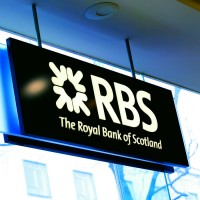
The growth in mortgage lending gave the bank a 12% share of the market in 2016.
The leap in lending, looks set to push RBS up the league table of the UK’s largest lenders from fourth to third, leap frogging Santander which reported a drop in gross lending by 6% to £24.6bn. Nationwide, yet to report its annual figures, sits between RBS and the top spot, dominated by Lloyds Banking Group. Lloyds saw a lending drop from £39bn to £38bn according to its annual results published this week. Barclays has chosen to keep its cards close to its chest, reporting only its gross lending to owner-occupied borrowers which chief executive Jes Staley said reached almost £19bn. In 2015, Barclays advanced £18.8bn across owner-occupied and buy to let mortgages.
RBS said its focus on service rather than price had proved it can grow in areas of the business such as the mortgage division.
The deepening losses rose from £2bn in 2015 to reach £7bn as at 31 December 2016. The bank said losses were driven up by litigation and conduct costs of £5.8bn for investigations into residential mortgage-backed securities (RMBS), provisions for additional PPI redress, a review into its treatment of SMEs and a provision in Ulster Bank RoI, for an industry-wide examination of tracker mortgages.
In a statement, chief executive Ross McEwan said: “The financial impact of these issues is a difficult but necessary step in working through the bank’s legacy issues.”
“…what happens to a bank when things go wrong…”
He added: “These costs are a stark reminder of what happens to a bank when things go wrong and you lose focus on the customer, as this bank did before the financial crisis. The more progress we have made on clearing these past issues, enables us to sharpen our focus on the core go forward bank.”
Last week, RBS announced it no longer had to sell Williams & Glyn to meet its obligations to the European Commission over the state bail out package it received in 2008. Instead, the Treasury is proposing a set of measures which will force the bank to support greater competition in the SME banking sector.
“The past is not completely behind us..”
“The past is not completely behind us, with our dealings on Residential Mortgage Backed Securities (RMBS) and Williams & Glyn, our residual European Commission state aid obligations, two significant issues that we still need to resolve,” McEwan said.
“The recent proposal by HM Treasury on an alternative way to increase competition to allow us to meet our state aid commitments would deliver an outcome more quickly, and with more certainty than undertaking a complex sale. We have been able to provide for both of these in our accounts, though there may still be substantial additional provisions on RMBS.”
In 2016, RBS’ restructuring costs were £2.1bn for 2016, compared with £2.9bn in 2015, and included a £750m provision for the new plan to meet its state aid obligations in respect of Williams & Glyn. The restructuring provision includes £146m of termination costs associated with the decision to discontinue the programme to create a cloned banking platform.
To post a profit by 2018, the bank’s target year, McEwan said more needs to be done to reduce costs further. He has pledged that the next three years will not be the same as the past three. He sees opportunities to lower operating costs by simplifying its businesses and transforming its digital offering. “We no longer have global aspirations,” he explained.
















